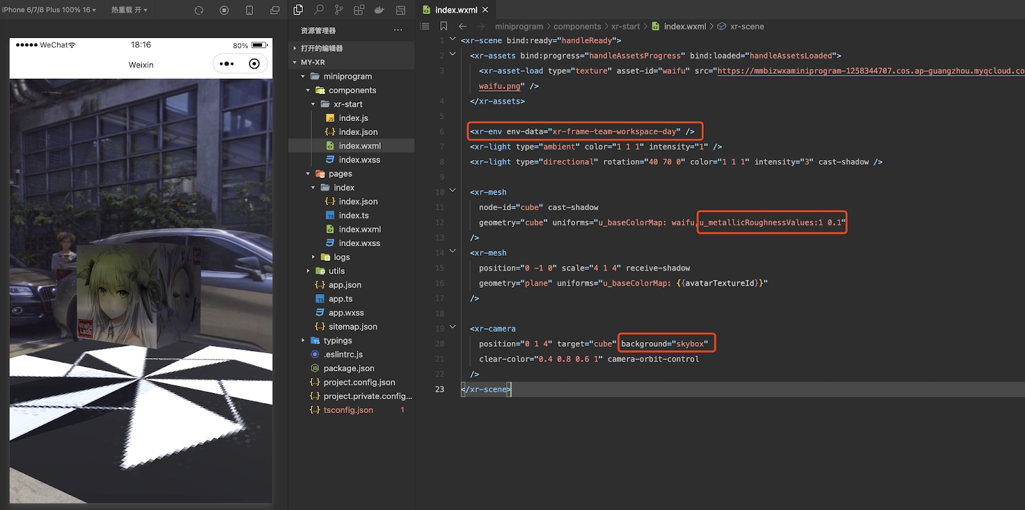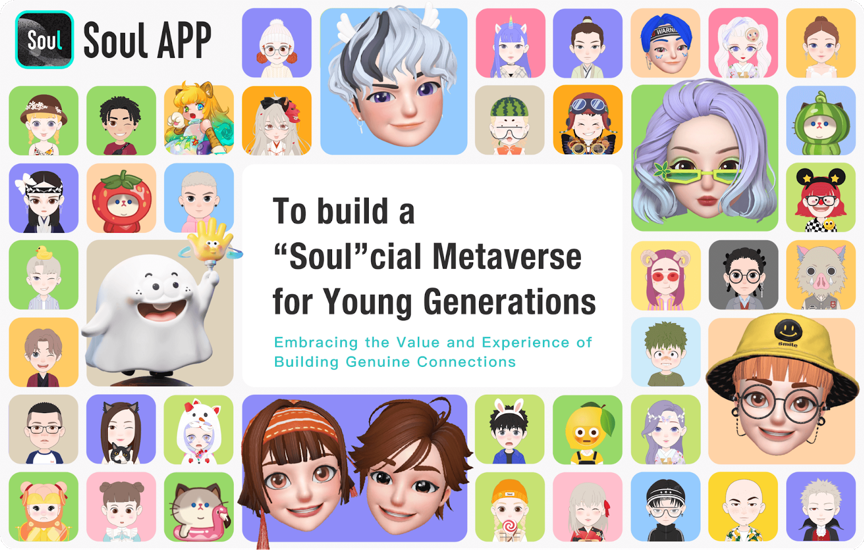
Mark Zuckerberg has made the biggest empty promise about the "Metaverse", as Facebook, which renamed Meta, spend USD $10 billion in 2021 trying to develop metaverse software and hardware, and launched the VR social platform Horizon. But, desperately, there were only 300,000 monthly active users after three months Horizon has been launched. Meta also suffered an operating loss of USD $10.19 billion and a market value loss of more than USD $237 billion because of its Metaverse business.
Despite the failure in software, META's hardware, Oculus Quest, still has a global market share near 80%. In a nutshell, its fever of "metaverse" and "cryptocurrency" never fades.
Platforms for Metaverse that combine blockchain technology with specialized features, such as Decentland, are a high barrier to entry but have limited appeal for the general public. At the same time, due to technology limitations and immature users' minds, building specialized platforms may not be a good idea for the development of Metaverse.
A New Era or Just a form of Social Network?
Users get the closest experience of "metaverse" via gaming, and "game" has always been regarded as the "stepping stone" of the metaverse. With the launch of Horizon Home, "Metaverse Socialization" has also attracted attention.
At present, Metaverse social products basically follow two approaches. The first one is the character customization system, users can create their own character based on their preferences before starting to match with other users. The other is to build a virtual world through a game-like experience, and users gradually establish relationships in the process of playing games. For example, we think Minecraft is the most successful cross-platform Metaverse social product, while Animal Crossing: New Horizons is the most successful single-platform product.
Suffering from losses, Roblox and Fortnite are taking the lead in gradually transforming the Metaverse game spaces into social media spaces.
However, in China, 5G, cloud-computing, and complete online social networks may change the situation. Contrary to economists' general belief that the future shape of people's social interaction will mainly take place in the Metaverse, Chinese social apps are conquering the Metaverse.
1. WeChat:

Chinese super app WeChat with more than 1.30 billion monthly active users currently posted its "XR-FAME" development guide, planning to use the Metaverse technologies in the WeChat mini-program. According to demos, XR-FAME is able to provide users with AR face-changing and AR game experiences and will cooperate with e-commerce companies to help AR try-on and AR home decoration projects to improve their commercialization efficiency. The WeChat’s strategy is togive the mini-program the ability to extend reality and 3D capabilities. In the future. The human-machine interaction of mini-program will gradually shift from 2D to 3D in the future.
However, the common set of character customization and dress-up system in the Metaverse is not provided in this upgrade of the WeChat mini-program, which means that the XR mini-program will not be a Metaverse platform for personal entertainment, but gives priority to addressing B2B business services, so as to enhance the engagement with retail sector.
2. Soul:

Soul is the app that "helps people fall into relationships". Since 2015, Soul learned experiences from strangers' social apps, such as MoMo and TanTan, and explored a new mode of "soulmate socialization". On Soul, face value and geographical location became unnecessary. And soon, it had been recognized by the GenZ, who craved for identity and companionship. In 2021, the content on Soul received a total of 574 million replies, and 89.1% of active users established deeper contacts with others on various apps via Soul. Meanwhile, Soul‘s listing on the NASDAQ was called off midway through. When Soul filed for a second time with the Hong Kong Stock Exchange for another listing, it highlighted the concepts of social Metaverse and virtual socializing in its prospectus. The "social metaverse" became an ultimate goal for Soul.
Metaverse fits the interests of the GenZ users on Soul, while on the other hand, the main monetization mode of Soul is through the selling virtual props or membership subscription and other value-added services. Improving the virtual social ecology by using Metaverse will help Soul explore diversified revenue channels and enhance the monetization ability of the platform. The Giftmojis allows users to send real gifts to others in the Soul community without revealing their identity.
However, as a social app for strangers, the biggest problem of Soul remains the retention rate of their users. For example, most Soul users choose to exchange WeChat numbers after establishing contact with strangers through Soul, turning weak online relationships into strong offline relationships. Therefore, we think that most of the Metaverse social app might also end up sending users into WeChat.
3.Baidu Xirang:

The leading Chinese Internet company is also deepening its development in Metaverse, especially in building a Metaverse marketing system. In this brand-new Metaverse platform, Xirang, Baidu invites brands to explore and help them generate revenue in Metaverse. In this regard, Xirang basically follows the same logic as "XR-FAME" of WeChat. A total of 20 important AI features has been developed by Xirang, including intelligent vision, intelligent voice, and natural language understanding. They have attracted dozens of global brands from over 20 key industries to test on the Xirang platform.
There are a thousand Metaverses in the eyes of a thousand people. But at this moment alone, the exploration and development of the Metaverse is still in its infancy, and the existing products are like pieces of a puzzle that hardly constitute a complete metaverse experience.
Overall, it is clear that there is not a single company that owns very metaverse technology, which means that there may also not be just only one metaverse world. At least in the context of Web 2.0, the Metaverse will remain closer to the formation of Web2.0 until Web3.0 technology is relatively mature. In addition, Chinese users are still far more dependent on social networks than Metaverse enthusiasts.
Wherever the Metaverse goes in the future, we believe that there will be a huge opportunity for creativity and hardware development, such as virtual reality gear. Especially for those independent creators in the fields of music and art, whose work is closely related to virtual characters and other elements in the Metaverse. In the meantime, 3D assets and NFTs could play an extremely important role in the Metaverse to attract more creators, investments and businesses.










